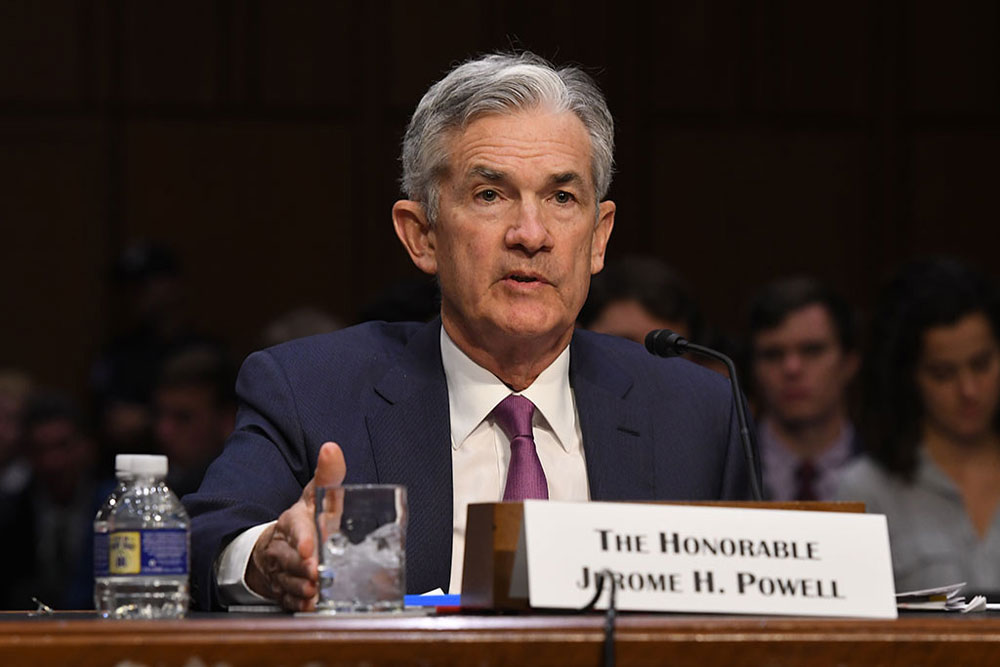
“The burden has fallen most heavily on those least able to bear it.”—Jerome Powell
In a videoconference address to the Peterson Institute for International Economics, Jerome Powell, chair of the Federal Reserve, laid out in no uncertain terms the depths of the nation’s pandemic-induced economic shutdown and warned that any recovery would take time and more stimulus spending.
Federal Reserve officials are known for opaque wording and restraint, so this was a clear departure from that norm. One key part of Powell’s message was that the downturn has affected low-income Americans most severely. As Powell remarked, “Among people who were working in February, almost 40 percent of those in households making less than $40,000 a year had lost a job in March.”
This reinforces a message we covered in NPQ last week, when we observed, citing Economic Policy Institute research, that “there is a strong class dimension to the unemployment wave” on top of its highly inequitable gender and racial impacts. Citing federal unemployment data, we further noted, “Of the 19.5 million jobs lost in the private sector last month, fully 18.1 million of them were classified as production and non-supervisory workers. Even amidst a massive surge of unemployment, unemployment among managers is presently 6.2 percent (with professional workers at 8.8 percent and all other job categories 12.7 percent or higher).”
Powell’s statement is based on a Federal Reserve survey that is expected to be released today. Powell’s prepared remarks are available here.
In his remarks, Powell also spoke to what is at stake.
Long stretches of unemployment can damage or end workers’ careers as their skills lose value and professional networks dry up and leave families in greater debt. The loss of thousands of small- and medium-sized businesses across the country would destroy the life’s work and family legacy of many business and community leaders and limit the strength of the recovery when it comes. These businesses are a principal source of job creation—something we will sorely need as people seek to return to work.
In barely coded wording, Powell made it clear that the Federal Reserve supports a robust follow-on stimulus package, although he stayed far away from advising specific policies. Powell concluded his remarks by noting that, “Additional fiscal support could be costly, but worth it if it helps avoid long-term economic damage and leaves us with a stronger recovery.”
Sign up for our free newsletters
Subscribe to NPQ's newsletters to have our top stories delivered directly to your inbox.
By signing up, you agree to our privacy policy and terms of use, and to receive messages from NPQ and our partners.
It is not clear if Powell’s remarks might push forward Congressional action to authorize additional spending. As NPQ covered, earlier this week House Democrats proposed a $3 trillion stimulus bill.
Writing in the Washington Post, Heather Long and Erica Werner note that in the question-and-answer session that followed, “Powell said he is concerned about a domino effect, where consumers lose jobs and sharply cut spending. That, in turn, can cause more restaurants, gyms, and other businesses to close, hurting more jobs. Companies that go out of business also stop paying their suppliers, which can drag down other firms.”
Signs of the scale and scope of the slowdown are mounting. Last Friday, official unemployment was reported to reach 14.7 percent in April, the highest level since the Great Depression. An estimated 100,000 small businesses are said to have closed permanently, according to researchers at the University of Illinois, University of Chicago, and Harvard. Real gross domestic product (GDP) fell 4.8 percent in the first quarter, with a much greater decline expected for April through June.
Alex Bartik, an economics professor at the University of Illinois, is part of the multi-university team of researchers that has been tracking small business closures from the pandemic. To date, the research team has found that more than two percent of US small businesses have closed permanently already.
Several Federal Reserve officials, including Powell, have indicated that they believe that the US economy may soon hit its low point and then begin to rebound, but add that the economic rebound is unlikely to be rapid. “There is a sense, a growing sense I think, that the recovery may come more slowly than we would like,” Powell said.
The message for our sector is clear, whether we are in social movements, nonprofits, or philanthropy. We need to work together to build a more equitable national direction. Because if we don’t, then that new national direction will be decided for us. Indeed, as Powell’s speech reminds us, that decision is being made for us in real time. If we don’t act, the class divides being expanded now have a high risk of becoming even further frozen in place, along with all their racial dimensions.










